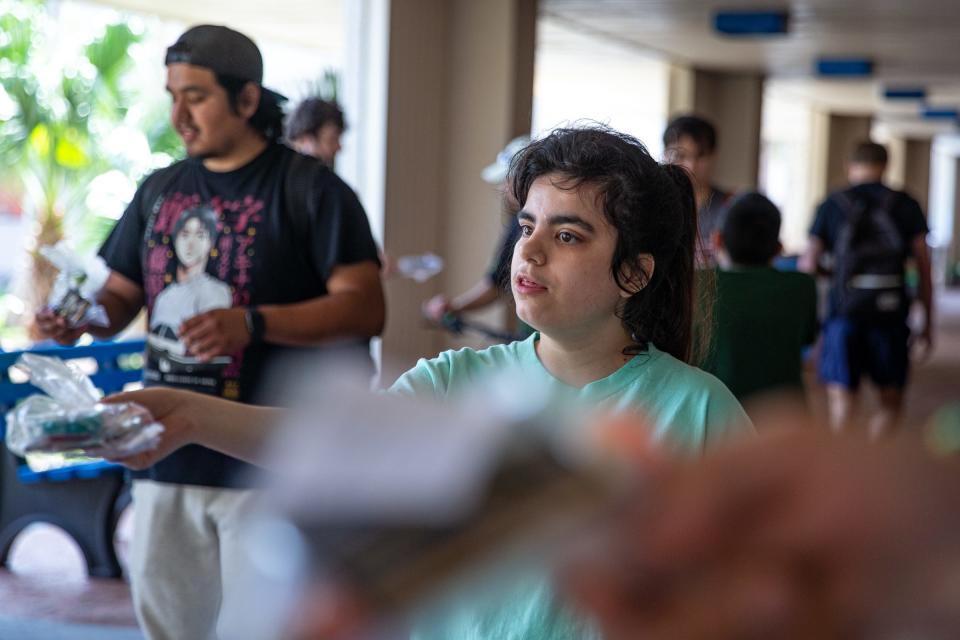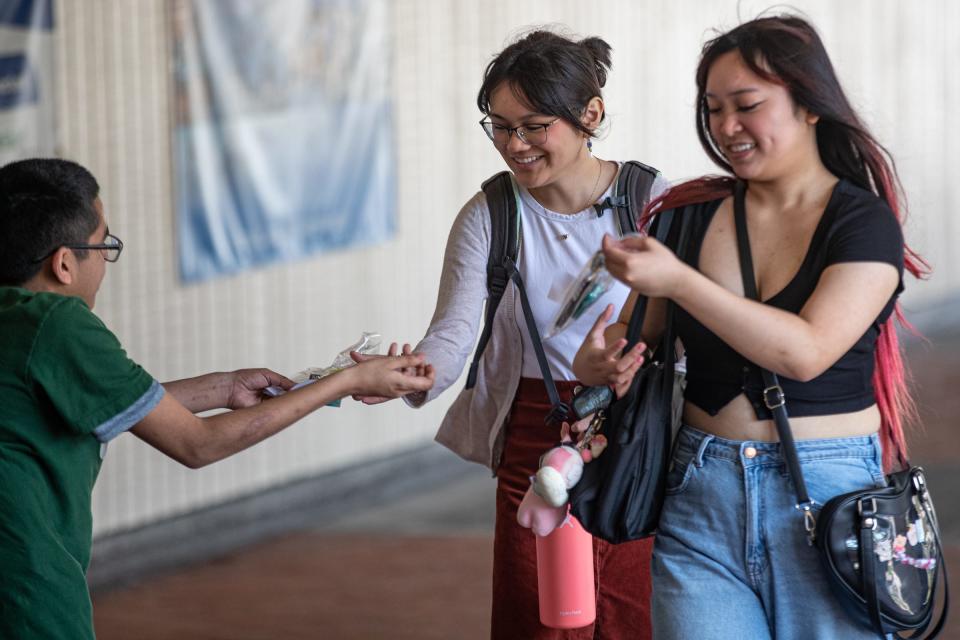Texas A&M-Corpus Christi will have a new special education degree. Here's why it matters.
Texas A&M University-Corpus Christi is introducing a new bachelor’s degree in special education in the fall.
Previously, special educators were trained at the university through an emphasis program. A new degree program comes with additional coursework and training in special education.
Schools across the country have reported that special education is among the teaching positions with the most vacancies. Almost two-thirds of public schools reported that they were understaffed with special education teachers as of August 2022, according to the U.S. Department of Education.
At Corpus Christi ISD, the district has seen sharp increases in the number of special education students at the same time as it has struggled to fill teacher, paraprofessional and diagnostician vacancies.
Corpus Christi ISD sees special education student increases, staff vacancies
Well-prepared teachers can help meet those needs, said Phyllis Robertson, chair of the College of Education and Human Development curriculum, instruction and learning sciences department.
Under the emphasis program, the university has averaged about a dozen special education teachers each year. It hopes to increase that to between 35 and 40 annually over the next five years.

About the degree
New coursework includes classes on math intervention, intercultural communication and collaboration, assistive technology, child development and transition planning.
Throughout their time in the K-12 education system, students with disabilities are ensured free and appropriate public education through the Individuals with Disabilities Education Act.
“In schools, we are really good at providing supports for students,” assistant professor of special education Ashley Voggt said. “With transition, we hope by then that students are as interdependent as possible, which means that they’ve already got connections within the community and they’re ready integrate and they’re going to be as independent as possible.”
Though certification in Texas focuses on students in early childhood through 12th grade, many students with disabilities stay in school until they’re 21.
How Corpus Christi schools are prepping students with disabilities for independent living
The new degree program will focus on that full age range, as well as meeting the needs of students with a wide range of individual needs.
This includes students with both high-incidence and low-incidence disabilities.
High-incidence disabilities, such as learning disabilities, are more common and affect many special education students. A low-incidence disability is rarer and may require more extensive or pervasive support needs.
“What we’ve been able to do with this new degree is add courses that we believe will ensure our ability to prepare teachers to serve that wide range,” Robertson said. “Students with disabilities are a very heterogeneous group.”
Robertson and Voggt said that even among students who share a diagnosis, needs can vary widely.
“If you’ve met one student with autism, you’ve met one student with autism,” Robertson said.
Voggt said that the degree program will help give teachers the tools to adapt and modify depending on the child and the situation.
The skills and strategies special education teachers learn are also important for all teachers, Voggt said, such as classroom management.

Addressing teacher vacancies
Giving teaching students the opportunity to experience the realities of the classroom while still in college helps ensure they are prepared for the job, Voggt said. This field experience will be a part of the special education degree and is already a part of the training the university offers education students.
Voggt added that a focus of the program is encouraging evidence-based practices in the classroom with consistency and reliability.
Mentorship is critically important, Robertson said.
In addition to the new bachelor’s degree program, the university has an existing special education master’s degree program.
Addressing the special education teacher shortage, Robertson said that she believes some of the problem can be traced to perceptions.
“There is a perception that being a special education teacher is extremely challenging,” Robertson said. “There’s this common, I think, misperception that special education teachers are so patient. But I would say that special education teachers are persistent.”
Special education teachers believe in their students, Robertson said, and don’t give up on helping students reach their full potential.
“But usually all it takes for us sometimes to turn someone into a special educator is to give them the opportunity to serve kids with disabilities for just a few minutes and then they’re like, ‘Oh, my gosh, this is the greatest thing in the world. I can’t imagine doing anything else,’” Robertson said.
Robertson believes that inclusion and disability awareness can have a huge impact.
“One of the things we want is for students with disabilities to participate actively in all aspects of schooling and all aspects of the community, just as all of us are given opportunities to do that,” Robertson said. “One of the things we want to do is really work with our students to understand how you advocate for inclusivity.”

Texas A&M University-Corpus Christi plans to bring history into downtown space
Nearly 8,000-acre ranch gifted to Texas A&M University-Kingsville Foundation
Del Mar College celebrates completion of Oso Creek Campus
This article originally appeared on Corpus Christi Caller Times: Texas A&M University-Corpus Christi adds degree in special education

 money
money 